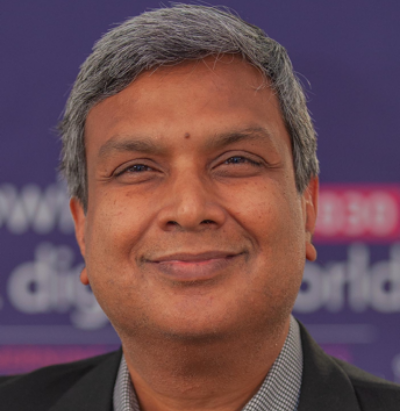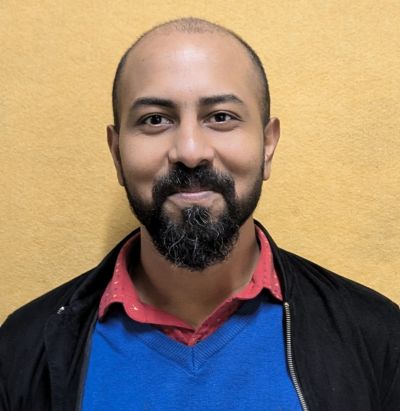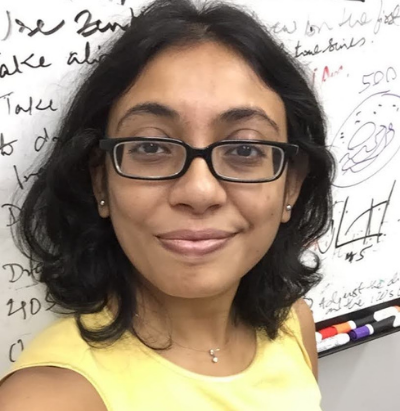Principles of Science
Semester: Spring 2025 | FC-0801-2
Course Instructor– Dr. Anurag Agrawal and Dr. Mayank Garg
Overview–
The principles of science manifest themselves in different ways in different domains of science, but a few things remain constant, namely the scientific method. In the scientific method, we look for internal and external inconsistencies in our models, ensuring that our beliefs are coherent within themselves (internal) and with available data (external). Health is an extremely important subject, relevant to each one of us individually and as a society, but is far more subjective than say physics or maths, where we can speak of fundamental laws of the universe that exist independent of us. Principles of health science teach us about the scientific method, but also about ourselves as a species and society, going beyond the natural sciences. Even used in the restricted context of human health, the meaning changes from birth to death, from past to present, and even from culture to culture. This course provides a view of sccientific thinking in health from multiple lenses, including physiology, digital technology, medical history, and sociology. I hope that this will serve as a model of how to scientifically analyze ‘wicked’ interdisciplinary topics where neither the questions, nor the answers, are well-defined. We will cover the following topics in the context of health:
- The four paradigms of science: theoretical, experimental, computational simulation driven by theory and experiment, and lastly discovery from big observational data. For example, at different stages of human history, how would we differently think about risk of tuberculosis.
- The disruptive effect of technologies. For example, how did germ theory and microscopes change the field of infectious diseases and public health
- How to ask a good scientific question. For example, what are the many questions inside “How do we eradicate tuberculosis”?
- Last, but not least, we will talk about how to go about finding an answer for a well stated question.
A sub-theme in this course will be the future of health in a digital age, where the fourth paradigm is starting to become operational, disruptive technologies like GenAI are present, but we need to do better in terms of asking the right questions and working across disciplines to answer them.

Dean, BioSciences and Health Research,
Trivedi School of Biosciences, Ashoka University
Head, Koita Center for Digital Health at Ashoka
MBBS, PhD, Diplomate American Board (Int Med, Pulm Dis, Crit Care)

Simons-Ashoka Early Career Fellow,
Mentor: Gautam Menon, Professor of Physics & Biology, Ashoka University
Co-mentor: Lalit Dandona, Distinguished Research Professor, PHFI, India & Prof. of Health Metrics, Univ. of Washington, Seattle, USA.
MBBS, IPGMER-SSKM Hospital, Kolkata & PhD, IGIB, New Delhi
Advanced Technique: Computational and Statistical Genomics
Semester- Spring 2025 | BIO-4711/BIO-6711-1
Course Instructor– Dr. Tanmoy Roychowdhury and Dr. Kasturi Mitra
Course Overview-
This course aims to provide conceptual knowledge as well as hands-on experience with computational and statistical genomics techniques that are used to understand genetic basis of various human phenotype/disease(s). This course will contain the following syllabus:
Basics of genomic variation (Week 1-2)
Genomic technologies and methods (Week 3-7)
Methods for understanding the genetic basis of phenotypes (Weeks 8-12)
This Course will include lectures (40%), demonstrations and hands on data analysis sessions.
Learning Outcomes-
By the end of this course, students will be able to:
- Explain principles and applications of various genomic technologies.
- Use publicly available resources for analyses of genomic variation.
- Understand different models of genetic inheritance and analytical designs.
- Apply their knowledge and skills to design relevant research experiments.

Associate Professor of Biology, Ashoka University
Ph.D. Jawaharlal Nehru University

Associate Professor of Biology, Ashoka University,
DBT-WellcomeTrust Senior Fellow,
Adjunct Faculty, Genetics department, University of Alabama at Birmingham
Ph.D. CCMB, Hyderabad
Human Genetic Disorders: From Rare Diseases to Cancer
Semester- Spring 2025 | BIO-4203-1
Course Instructor- Professor Alok Bhattacharya and Dr. Tanmoy Roychowdhury
Course Overview-
It has become very clear that genetic structure and organization of an individual plays an important role in the well-being of a person. Though we do not understand the phenotypic (or functional) implications of all variations in one’s genome, our understanding of the human genome has seen great strides in the last two decades and we are now in a position to predict functional consequences of many changes that are seen in our genome. Genetic disorders are caused by changes in our genome and have been implicated in almost every disease known to man. It is said that “if one goes into details, all diseases are likely to be genetic disorders”. This course will recapitulate basic principles of genetics and introduce the concepts of human genetics. It is now clear that thousands of rare diseases are caused by genetic alterations and cancers are thought to be a form of genetic disorders. Students will learn about the genetic basis of these diseases, how to diagnose and treat these diseases including some of the newer therapeutic approaches. Finally, students will learn how to analyse human genomic data and identify disease alleles.
Recapitulation of basic concepts in genetics and molecular biology
Alterations in DNA sequences and their consequences
Methods and techniques in genomic analysis
Mendelian single gene disorders
Complex genetic disorders
Cancer genomics
Genomics-driven diagnosis and prevention
Genomics-driven therapy
Genetic counselling and ethics in genetics
Learning Outcomes-
- A broad understanding of principles of genetics and genomics
- Learning about human genetics and genetic basis of different diseases
- Students will get familiar with tools and techniques that are used to analyse human genetic information and genotype to phenotype relationship
- Students will be familiar with basic ethical principles in genetic research

Professor of Biology, Ashoka University
Ph.D. Jawaharlal Nehru University

Associate Professor of Biology, Ashoka University
Ph.D. Jawaharlal Nehru University
Physiology
Semester- Spring 2025 | BIO-3423/BIO-6423-1
Course Instructor- Dr. Anurag Agrawal and Dr. Mayank Garg
Course Overview-
When seen from the lens of physiology, the human body is a biological machine evolved to carry out the processes of life. Death and disease are natural consequences of the failure of such processes. The course will examine life, death, and in between disease states from a physiological lens, outlining the core processes of respiration, circulation, metabolism, and disposal, studied from the view point of measurement and management
Learning Outcomes-
- General understanding of critical human physiology, failure of which leads to immediate death
- Respiration
- Circulation
- General understanding of partial failures compatible with life, described as disease
- Idea behind commonly used tools to diagnose or quantify health and disease
- Genomics and other data-intensive aspects that will be the core of future digital health
- Use of simple medical devices
- ECG
- Lung function testing
- Wearables for general health
- The idea of digital twins encompassing genomic data overlaid with lifetime biomedical data.

Dean, BioSciences and Health Research,
Trivedi School of Biosciences, Ashoka University
Head, Koita Center for Digital Health at Ashoka
MBBS, PhD, Diplomate American Board (Int Med, Pulm Dis, Crit Care)

Simons-Ashoka Early Career Fellow,
Mentor: Gautam Menon, Professor of Physics & Biology, Ashoka University
Co-mentor: Lalit Dandona, Distinguished Research Professor, PHFI, India & Prof. of Health Metrics, Univ. of Washington, Seattle, USA.
MBBS, IPGMER-SSKM Hospital, Kolkata & PhD, IGIB, New Delhi






